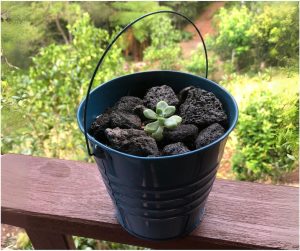Often people throw around the terms menopause and perimenopause as if they’re the same thing. But are they? In this article you’ll discover the difference between menopause and perimenopause and what you can expect in each of these parts of a women’s journey.
Menopause – when is it official?
Perimenopause and menopause are both times of transition – driven by changes in your hormones – that signal an end to your child-bearing years.
Menopause occurs when you stop menstruating, which also means you stop ovulating and are no longer able to become pregnant.
Menopause is considered ‘official’ 12 months after you have had your last period.
Note: it’s important to get this clear! Lots of women have assumed that because their periods have stopped for a couple of months that they can’t get pregnant and stop using contraceptives. Hence the phenomenon of the ‘change of life’ baby. It often comes as a BIG surprise to women who thought their child-raising days were over.
Most women go through menopause between the ages of 45 and 55. The average age in Australia is 51.
Perimenopause – changes are coming
Perimenopause means ‘around menopause.’ It’s the transition phase that leads up to menopause and the time when women often notice changes taking place.
Perimenopause can last as little as a few months or as long as 4 years. Anything in-between is considered ‘normal’.
And that’s one thing you quickly realise when you talk to women about their individual journey through perimenopause – we all experience it differently. Of course, there are lots of similarities, but it’s good to understand that the symptoms you have may be totally different to those of your girlfriends.
Menopause and Perimenopause – what’s happening on the inside?
As I said, perimenopause and menopause are driven by changes in your hormones – two in particular. A natural decrease in oestrogen production by your ovaries is what triggers the start of perimenopause.
And as perimenopause begins you may discover that your periods start to become irregular. You may not notice it, but sometimes you might have a period but without ovulation – no egg is released.
The other reproductive hormone is progesterone, which is normally released by your ovaries mid-cycle, when ovulation occurs. No ovulation, no progesterone. So as time goes on your progesterone levels also decrease.
Interestingly, it’s actually this reduction in progesterone that causes most of the symptoms we associate with perimenopause.
What can you expect in perimenopause?
As I mentioned earlier, we’re all snowflakes – different and unique – so each of us will experience perimenopause in a slightly different way. But here are some of the symptoms that women going through perimenopause commonly experience:
- irregular periods
- periods that are heavier or lighter than normal
- worse premenstrual syndrome (PMS) before periods
- breast tenderness
- weight gain
- hair changes
- heart palpitations
- headaches
- loss of sex drive
- concentration difficulties
- forgetfulness
- muscle aches
- urinary tract infections (UTIs)
What are Menopause symptoms?
As oestrogen levels continue to drop, you might start experiencing symptoms of menopause. Note – some of these can occur while you’re still at the perimenopause stage.
- night sweats
- hot flushes
- depression
- anxiety or irritability
- mood swings
- insomnia
- fatigue
- dry skin
- vaginal dryness
- frequent urination
- rising cholesterol levels
Do you need to call your doctor?
You don’t need to see your doctor to get a perimenopause or menopause diagnosis.
But there are times when you should definitely talk to a trusted medical professional.
Call right away if you experience:
- spotting after your period
- blood clots during your period
- bleeding after sex
- periods that are much longer or much shorter than normal
Some possible explanations for these symptoms are hormonal imbalances or fibroids – both of these are treatable. But, you also want to rule out the possibility of cancer.
How to get off the rollercoaster
It’s certainly true that experiencing some or many of these symptoms can make you feel like you’re on a crazy rollercoaster.
The good news is that there are natural options that can help minimise your symptoms and smooth out your journey through perimenopause and menopause.
As an aromatherapist who specialises in women’s hormones and menopause I’ve helped lots of women minimise their menopause symptoms and have more energy with some simple, powerful, natural products.
You can find out more here.
Kim xo










 Subscribe to Hot Oily Mumma
Subscribe to Hot Oily Mumma